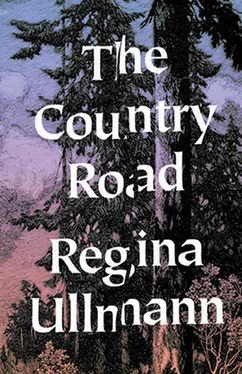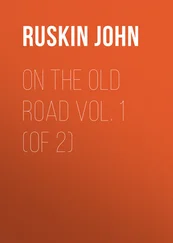Regina Ullman - The Country Road
Здесь есть возможность читать онлайн «Regina Ullman - The Country Road» весь текст электронной книги совершенно бесплатно (целиком полную версию без сокращений). В некоторых случаях можно слушать аудио, скачать через торрент в формате fb2 и присутствует краткое содержание. Год выпуска: 2015, Издательство: New Directions, Жанр: Классическая проза, на английском языке. Описание произведения, (предисловие) а так же отзывы посетителей доступны на портале библиотеки ЛибКат.
- Название:The Country Road
- Автор:
- Издательство:New Directions
- Жанр:
- Год:2015
- ISBN:нет данных
- Рейтинг книги:5 / 5. Голосов: 1
-
Избранное:Добавить в избранное
- Отзывы:
-
Ваша оценка:
- 100
- 1
- 2
- 3
- 4
- 5
The Country Road: краткое содержание, описание и аннотация
Предлагаем к чтению аннотацию, описание, краткое содержание или предисловие (зависит от того, что написал сам автор книги «The Country Road»). Если вы не нашли необходимую информацию о книге — напишите в комментариях, мы постараемся отыскать её.
, largely set in the Swiss countryside, the archaic and the modern collide, and "sometimes the whole world appears to be painted on porcelain, right down to the dangerous cracks." this delicate but fragile beauty, with its ominous undertones, gives Ullmann her unique voice.
The Country Road — читать онлайн бесплатно полную книгу (весь текст) целиком
Ниже представлен текст книги, разбитый по страницам. Система сохранения места последней прочитанной страницы, позволяет с удобством читать онлайн бесплатно книгу «The Country Road», без необходимости каждый раз заново искать на чём Вы остановились. Поставьте закладку, и сможете в любой момент перейти на страницу, на которой закончили чтение.
Интервал:
Закладка:
The farmer woman came for three weeks to work in the stall and in the house. For she saw at once that Julia couldn’t be expected to get up on the third day and wash the diapers herself, the way a country woman would. And Julia slept, too, almost as much as the child. On the first day when she was well enough to stand, she was shocked to find that she had to learn to walk again.
The short walk to the bench by the stove felt like drowning. She didn’t trust herself to lift the child for several days. The good old man kept taking care of everything. And so she owed him greater thanks than she had ever owed anyone in her life. Now this gratitude became her actual source of strength. It was also her only sort of happiness, she had no other. Life must have dealt her a brutal blow. Her childish nature could have been a sort of happiness. But it was always expressed in timidity, in her fear of every single unknown, unfamiliar movement. Even if one word was kind, if one action seemed clear and affirming, the next one, for reasons unknown, might be just the opposite. Oh life! How terrifying it was. It always seemed as if she herself had no mother, no husband, no brothers or sisters. As if life had just cast her out the door the day before. She still looked like that. Now she could do something, though, now she could do her work! And she had found a home for herself, too. And not just for herself. Her child was growing up alongside her. The child’s name was Maria. And there was something temple-like about her, that offered instruction in life. From the beginning of her second year, she was strictly obedient, and uncompromising in her love of order. Her few building blocks were always kept together, and when she was called from her play, she never failed to come. It seemed that she unconsciously aspired to grasp those circumstances of life that her mother had never managed to reach for out of her own darkness. For even if Julia was well-meaning to a fault, still you couldn’t deny that she was the sort of person others commonly refer to as “dumb.” Oh, God knows what she was. But one thing was clear: she was lacking something.
And, what wonder, the old grandfather treated her accordingly. He treated her like a healthy invalid. But the child was his enchanted little bird, his little flower. In time the child replaced his daily walks, for he was growing more hunched over and weary. The destinations of his walks grew closer and closer. Fewer and fewer people entrusted their messages to him. The church in its sweet charity still sent him here and there, for he had always been loyal and reliable. But eventually he stopped taking any jobs. He wandered through his house, hunched to death. It was a wonder that someone could still live bent over like that. But for little Maria, he seemed just right. She never had to reach her arm up higher than it could go, the old man was always bending his head down to her. Indeed, soon he was walking beside her at the very same height, as mothers sometimes do out of love. How wise this old man was. But he was not so unaware of himself as people might think. For often, when he encountered someone while going on his way (but he rarely ventured out anymore, for once, to his great dismay, he had suddenly found himself in an unfamiliar place, that is, he no longer knew where he was, since that seemingly small thing, memory, had let him down), for often, when he encountered someone, he simply stood still, looked up to that person, or to the sky, and gave a speech. And these were always truths that he spoke.
Once, since he was not entirely without practical concerns in this world, he told a visiting parish clerk that he wanted little Maria to be able to remain in the house, so after his death it should be sold to the mother at a modest price. “After all,” he said with emphasis, “you can’t take your money to heaven.” And he thought to himself: “I can do what I want with my money.” So he made a curious decision. He signed over his savings to the little one. But his savings were equal to the sale price of the house, so that Julia both bought her inheritance and received it as a gift. Surely this somehow reflected his feelings for her. When his decision became known, there was much talk of it in the village. Some people laughed, others didn’t know what to think anymore. But in the house the day passed almost monotonously, like a day in the life of a tree, an unchanging day. The necessary things were done, one after the other, and already it seemed that nothing was changing anymore. Except that one human sun was slowly, slowly setting, and the child was growing into a person, and already the world in which she lived, in which she formed her thoughts, was in her eyes. She sat for half a day at a time beside the old grandfather, as if she felt that if she didn’t now, soon she wouldn’t be able to do so at all. And a young lamb that had almost died of loneliness came along, too, softly bleating to him in its melancholy. But the old man was almost like Abraham, who could no longer tell Isaac from Jacob, when the one creature stood to his right, the other to his left. Yet he could feel Juliette’s strong arms, strengthened by the even strain of work, he felt those arms, and gladly allowed them to lead him back into his house.
One morning, oh, it was still early, he saw the spires of St. Mary’s cathedral. And the road that led there was a high road, a road through the clouds. He followed this road with his words. Julia sat at the edge of his bed with tears in her eyes. She saw his spirit leave his body, and she was powerless to find even a single word to hold it back. Because we must know that death is always right.
She saw at once what she had dimly felt before, that now that he was gone, she was back on that bench beside the country road again, and people were passing by, sizing her up. But she sensed that Joe, the old man, was not among them this time, and that she had only learned these things now in order that she should suffer all the more. For just as nature forces a one-armed man to use his mouth and his right hand in place of the left, to use his whole body in place of this one missing hand, so that now, instead of just one hand, suddenly he is expected to have ten at any moment; just as it was for him, so it was for her as well. So it was for her as well: “Why didn’t you properly train your soul, so that it could live within your body as a useful, functional thing; can’t you hold yourself together? Don’t you think someone could find a use for you? Oh, I can still use you as a scarecrow, if nothing else. Sure, you’re good enough for that. .” And tears ran down Julia’s cheeks, unabating. Now she was lonely, in the worst of ways, as we are when someone has passed on. And the child brought in peppermint from the garden, as if she could sense her mother’s powerlessness. The dying man came ever closer to his cathedral. He rang with his hands, as if imitating the bells. Finally the church took him in. And soon he looked just like that sarcophagus, stretched out long and covered over by the night of eternal sleep.
The child went away. But outside she picked flowers, and when she thought she had enough, she sat down on a rock, surrounded by her flowers and leaves, and waited as only children can wait. Evening came, dusk fell, the evening star rose over the house of this good shepherd of men, and the child fell asleep, and if Julia hadn’t known that her child came to this spot, she would not have easily found her.
Candles stood in their candlesticks, and a Sunday sense of order filled every corner of the little house. The child slept by herself in the small adjacent room, and the next morning she ran in between unfamiliar people, hardly even recognizing her own home. A wake like that is a serious thing. We never forget it as long as we live. And that is good. Those who have not seen death up close are only halfway human, because death, too, is a part of life. First, fresh sheets were put on the bed, as if a new guest were coming, then water was fetched from the well, and vinegar, and a burial gown from the cabinet; stiff and dreadful in its way. Then the body was washed. Like the forest floor after heavy downpours, the veins lay exposed, and the bones were pushing out, rising up, as it were, to form the one image that persists in death. To a person like Julia, this most human of all things seemed the most inhuman; it required an immense effort for her to perform this duty. She was not lacking in love, she had tended his sickbed for years without a second thought, but this sight pushed her pain beyond its limits. And one must be fully drawn into this life, to be able to wash and clothe an old man like that for the grave. The farm girls took turns praying by the coffin, while the others stayed beneath the crucifix in the corner of the room, singing hymns. These sounds continued throughout the hours of day and night, until it was time for the body to be taken away. There was life in the house, but on tiptoes, with a lowered head. There were more people there than could fit into the house, and yet they didn’t even fill the space. Everyone withdrew to his own spot as much as he could. And the ties that they had to one another were meant not for them, but for the dead man. They all offered Julia their hands. But even the day after the funeral they were less forthcoming with their greetings, and by the third day she had been forgotten. And it wasn’t just that she was a stranger, or that they looked down on her on account of her child. No, in this region in particular, people lived in desperation, like iron glowing in the blacksmith’s tongs, and no one had much time or inclination to speak or think of others. But no, it was because everyone felt that she was not human. If she had been in harmony with the world, or even only with herself, she would have enjoyed the friendship of the neighbors. But as things stood, what was alone within her was alone outside, as well.
Читать дальшеИнтервал:
Закладка:
Похожие книги на «The Country Road»
Представляем Вашему вниманию похожие книги на «The Country Road» списком для выбора. Мы отобрали схожую по названию и смыслу литературу в надежде предоставить читателям больше вариантов отыскать новые, интересные, ещё непрочитанные произведения.
Обсуждение, отзывы о книге «The Country Road» и просто собственные мнения читателей. Оставьте ваши комментарии, напишите, что Вы думаете о произведении, его смысле или главных героях. Укажите что конкретно понравилось, а что нет, и почему Вы так считаете.












